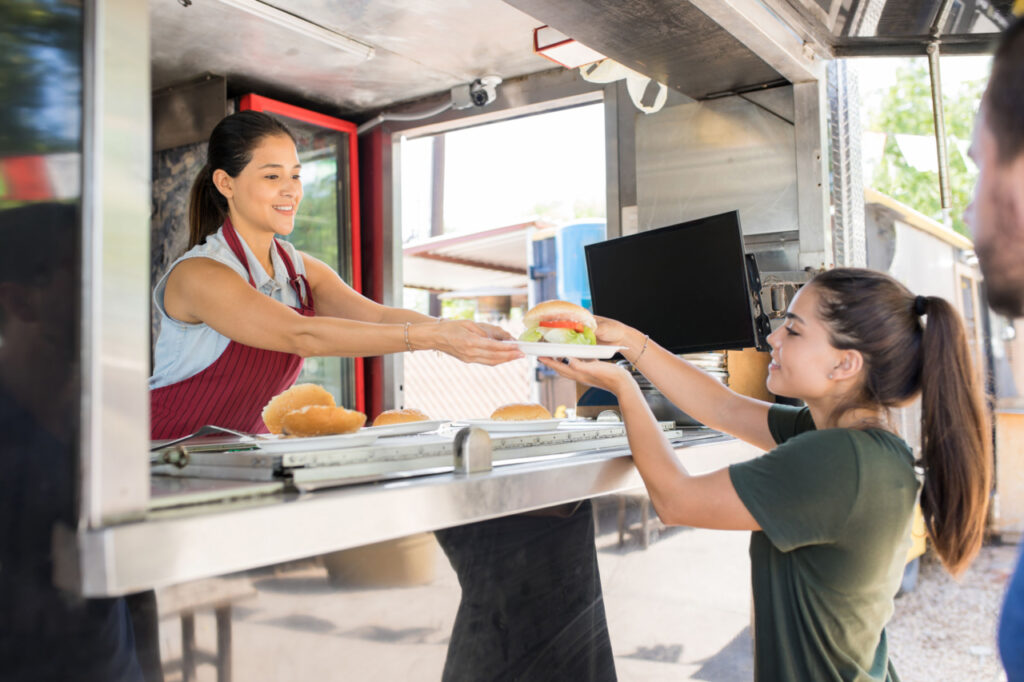In recent years, the food truck industry has experienced a remarkable surge in popularity. These mobile culinary delights have captured the hearts and taste buds of people around the world.
With their ability to serve delicious meals on the go, food trucks offer a unique and exciting dining experience. If you have a passion for food and dream of owning your own food truck, this guide will provide you with the essential steps to turn your concept into a thriving reality.
Choose Your Concept: Finding a Unique and Marketable Idea

The first step to own your own food truck business is to define your concept. This is where your creativity and culinary expertise come into play. Brainstorming unique and marketable ideas will set you apart from the competition and attract a loyal customer base.
Consider the current food trends and identify gaps in the market that you can fill with your own innovative twist. Whether it’s gourmet burgers, fusion tacos, or artisanal desserts, find a concept that excites you and resonates with your target audience.
Research Your Target Market: Identifying Your Ideal Customers
To ensure the success of your food truck venture, it’s crucial to understand your target market. Conduct thorough research to identify your ideal customers and their preferences.
Are you targeting office workers during lunch breaks or late-night revelers seeking a post-party snack? Analyze the demographics, lifestyles, and eating habits of your potential customers. This knowledge will guide your menu development and help you tailor your offerings to meet their tastes and needs.
Create a Business Plan: Mapping Out Your Finances and Operations
A solid business plan is the foundation of any successful enterprise, including your own food truck business. It acts as a roadmap, guiding your decisions and ensuring you stay on track. Your business plan should encompass key aspects such as financial projections, marketing strategies, operational logistics, and growth plans.
Outline your startup costs, pricing structure, and projected revenue streams. Remember to account for variables such as fuel costs, ingredient prices, and maintenance expenses for your truck.
Secure Necessary Permits and Licenses: Navigating Legal Requirements

Before hitting the road, you must navigate the maze of permits and licenses required to operate a food truck legally. The specific requirements vary depending on your location, so research the local laws and regulations that govern food truck businesses in your area.
Common permits and licenses include health permits, business licenses, and parking permits. Additionally, you may need to obtain special permits for operating in certain areas or participating in events. Compliance with these legal obligations will safeguard your business and ensure customer confidence.
Find the Right Truck: Selecting a Suitable Vehicle for Your Venture
The heart and soul of your food truck business is the vehicle itself. Choosing the right truck is essential for creating a functional and attractive workspace. Consider factors such as size, layout, and storage capacity.
Will you opt for a new custom-built truck or a used one that you can modify to suit your needs? It’s crucial to strike a balance between functionality and aesthetics. Your truck should be eye-catching, reflecting your brand’s identity, while also providing an efficient and comfortable workspace for your culinary endeavors.
Equipment and Kitchen Setup: Optimizing Your Workspace for Efficiency
Once you’ve acquired your food truck, it’s time to equip your kitchen for maximum efficiency. Space is limited, so prioritize essential equipment that aligns with your menu. Commercial-grade appliances such as grills, fryers, refrigerators, and prep stations are the backbone of your operation.
Optimize your kitchen layout to ensure smooth workflow and minimize wasted movement. Invest in high-quality, durable equipment that can withstand the demands of a mobile kitchen. Keeping your workspace organized and well-maintained will contribute to the overall efficiency and productivity of your food truck.
Source Quality Ingredients: Building Relationships with Suppliers and Vendors

The success of your food truck business relies heavily on the quality of your ingredients. Establishing strong relationships with reliable suppliers and vendors is essential to ensure consistent and fresh supplies.
Research local farmers markets, wholesale distributors, and specialty suppliers to source the best ingredients for your menu. Emphasize the use of local and seasonal produce to enhance the flavor and appeal of your dishes. By prioritizing quality ingredients, you can create a culinary experience that keeps customers coming back for more.
Marketing and Branding: Promoting Your Food Truck and Creating a Strong Identity
In today’s competitive market, effective marketing and branding are crucial for attracting customers to your food truck. Develop a strong brand identity that reflects your concept and resonates with your target market.
Create an eye-catching logo, design attractive signage, and establish a captivating online presence through social media platforms and a dedicated website. Engage with your audience by sharing enticing food photos, behind-the-scenes glimpses, and customer testimonials. Collaborate with local influencers or participate in food truck events to generate buzz around your business.
Launch and Ongoing Management: Successfully Running and Growing Your Business
With your concept defined, permits obtained, truck equipped, and marketing strategies in place, it’s time to launch your food truck and start serving delicious meals to your customers. Pay attention to customer feedback and adapt your menu or operations accordingly.
Monitor your finances closely, ensuring that your revenue streams are aligned with your expenses. Track your performance, evaluate your growth, and consider expanding your business by exploring catering opportunities or participating in food festivals.
Conclusion: Own Your Own Food Truck and Bring Your Culinary Dreams to Life

Starting your own food truck business is an exciting and rewarding journey. By following these essential steps, you can turn your culinary dreams into a thriving reality. With dedication, passion, and a dash of entrepreneurial spirit, you can own your own food truck and embark on a flavorful adventure in the world of mobile cuisine. So, let’s fire up those grills, roll out those wheels, and bring joy to taste buds one delicious bite at a time.







